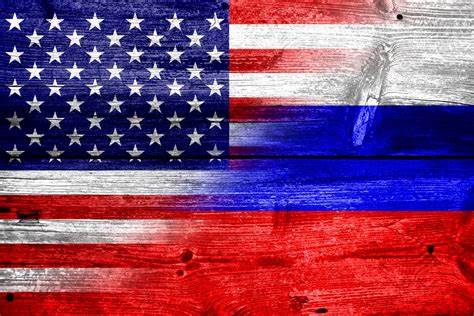Let's talk now about the U.S. and Russia, a relationship where the points of friction are many and growing. There's Russian opposition leader Alexei Navalny, who is in prison, who just ended a hunger strike and whose political movement has just today been ordered to shut down operations. There's also Russian hacking and cyberattacks against U.S. targets and zero evidence that those attacks are slowing. And then there's the fact that Russia was massing troops on the border with Ukraine with the goal of — well, that's a question to put to our next guest, Russia expert Angela Stent. She is director of Georgetown University's Center for Eurasian, Russian and East European Studies.
Professor Stent, welcome.
ANGELA STENT: Glad to be back on your show.
KELLY: Start with this news today about Navalny. These are orders his headquarters has to suspend activities, his national network to suspend activities. What's the significance?
STENT: It's very significant because now that this organization has been deemed an extremist organization, it puts it on a par with, you know, al-Qaida and terrorist organizations. And so if you mention it, if you talk about it on social media, you can then be accused of being part of an extremist organization. And you can be jailed. So this will really make it very difficult for Navalny's organization to continue to operate, even from abroad.
KELLY: What about Navalny himself? This hunger strike reportedly brought him close to death. People will recall he nearly died last year when he was poisoned with what appears to have been a Soviet-era chemical weapon. How much do we know about the conditions in which he's being held?
STENT: We know that they finally let some civilian, i.e. nonprison, doctors examine him last week. And so that enabled him then to go off the hunger strike because that's why he was on the hunger strike. But he has a lot of physical ailments, some of which are obviously a result also of the poisoning, some of which may have been acquired when he was in the prison. But he is apparently getting some better medical treatment. And he's still asking for his own doctors to see him, but I'm not sure that that's going to happen.

KELLY: All right. Let me turn you to another development. We mentioned Russia had been building up military forces on the border with Ukraine. These countries are engaged in a conflict that has been running for seven years and counting now. Russia says the buildup is over. They're pulling back. Do you buy it?
STENT: I buy some of it. I think one of the reasons they massed all of those troops was even though the Biden administration has said that Russia is a major threat to the U.S. but not as important as China in terms of a threat, I think they were concerned that the U.S. was saying, Russia is really not a top priority for us. They were also not happy about what President Zelensky has been doing inside Ukraine. He's been attacking pro-Russian interests, oligarchs and things like that. So I think we should be quite clear that if they want to repeat this exercise, they can easily do it. But they've certainly, you know, lowered the temperature by withdrawing the troops.
KELLY: One other development to throw into the mix. The U.S. ambassador to Moscow, John Sullivan, was politely invited to leave — I think is an accurate way to put it. He wasn't quite expelled, but it was made clear it might be in his interest to head home to the U.S. for a little while. Is that also about lowering the temperature?
STENT: This was in response to the remark that President Biden made when he was asked whether he believed that Putin was a killer, and he said yes. And immediately, the Kremlin ordered the Russian ambassador in the United States, Ambassador Antonov, to go back to Russia for consultations. And so I think this was sort of in response to that. And as the temperature was getting higher, saying that Ambassador Sullivan should go home because now we have a situation where, apparently, President Biden and President Putin will meet for a summit this summer. And not to have ambassadors in the two capitals beginning to work on, you know, what the agenda might be — of course, there are other channels of communication, but it makes one question what the Russians' ultimate goal in this was.
KELLY: Angela Stent, professor at Georgetown University and author of the book "Putin's World."
Thank you.
STENT: Thank you.












